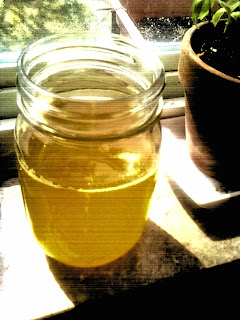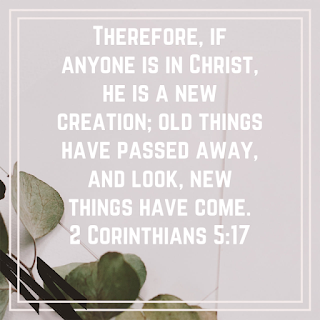life of excess
Happy DAAP Eve -
I am currently writing during my last night of freedom before I feel the ball and chain that is design school. A welcomed source of stress you could say, full of anticipation of late night drawing and modeling, cad work in a windowless chamber, and talk about skin transparency and a fluid structural system expressing tectonics. It may sound like I'm not looking forward to this, but I am; after a year away from school I feel I'm coming with a refreshed attitude of knowing where I want to grow in my design knowledge and what I can excuse as seemingly nonsense, but is another's forte.
Besides that, excitement surrounds today in that I am now officially belay certified, which means the campus rec center entrusts your life to me on the climbing wall.

I also made ghee today. This is clarified butter that is good to use for cooking, something I learned in California. You basically just need to melt and simmer the butter to cook out the milk solids, strain, and store it and there you go.
As I will be learning plenty about architecture over the next 10 weeks, I will express a little that I've been learning this past month while at home and in Cincinnati, reading the days away.
Now listen, you rich people, weep and wail because of the misery that is coming upon you. Your wealth has rotted, and moths have eaten your clothes. Your gold and silver are corroded. Their corrosion will testify against you and eat your flesh like fire. You have hoarded wealth in the last days. Look! The wages you failed to pay the workmen who mowed your fields are crying out against you. The cries of the harvesters have reached the ears of the Lord Almighty. You have lived on earth in luxury and self-indulgence, You have fattened yourselves in the day of slaughter. You have condemned and murdered innocent men, who were not opposing you. James 5.1-6.
Recently I've realized I need a trifecta of examples to be taught a lesson. I read (1) the above passage around the same time (2) I watched the movie The Book of Eli for the first time and (3) listened to my pastor in Seattle, Richard Dahlstrom,'s sermon on a Biblical view of sustainability and environmentalism.
First, The Book of Eli is a Hollywood post-apocalyptic film where the protagonist Denzel Washington's character, Eli, is protecting the last remaining copy of the Bible on earth. In a conversation with a teenage girl who had never known modern civilization, he describes our culture to her:
People had more than they needed. We had no idea what was precious and what wasn't. We threw away things people kill each other for now.
To look at our culture and way of life in a larger framework than here and now, this is only too logical, and tragically so. The sermon to which I referred is Richard explaining how in Bill McKibben's book Eaarth, the author explains how our modern thinking and way of treating the world stems back to the Bible and Christian/Judaic thought that we are separate and above the treatment of the earth, as God's creation 'over' nature. I have not read this book, but this is a very valid point, in that it has influenced people thus. Richard's argument in favor of a healthier interpretation of our role with the earth according to Scripture is that we are called to be stewards of the earth, that we are to be responsible with its use to bless ourselves and others with health and life. He stresses the importance of the fact that we can have enough to live (I forget the exact Biblical reference, please let me know if you know), but should not require more, we are not made to have excess. An immediate example I can think of with this concept is when the Israelites were freed from Egypt and, while living in the desert without resources for food, God would send manna down from the sky daily, and people were to take their daily amounts (Exodus 16). Those who tried to store more found that the next morning it smelled and was full of maggots (v.20).
The passage in James connects this Biblical and modern example of a life of excess. It convicted me of the reality of our culture. Recently while thinking of America's extreme lack of knowledge of nutrition or even caring about environmental/personal health concerns associated with food, I've come to think this may have a direct connection with their spiritual lives. Is it possible to be completely God-seeking and -fearing, while having no conviction or sense of responsibility for the body and earth which produces its physical sustenance? Is our country's general lack and disregard of faith in God (spirituality in general) connected to its disconnect with nature and the food system, or vice versa?
If I were to say pesticides are harmful to the environment, why is that so hard to believe? What if I mentioned the injustice brought about by large food corporations like Monsanto, and pesticides that bring infant mortality rates in indigenous tribes soaring, with children being stillborn, poison evidenced with their yellowed eyeballs? Why is it difficult to make the decision that organic is a good option? Lack of evidence? Does one seek out the evidence?
If I were to say the clothes on your back were created from unsustainable harvested cotton, woven and sewn in a factory in which women are forced to walk dangerous routes to work in unfair and difficult conditions, fearful that their walk home may result in rape or death? Are you aware of where your clothing comes from? Are we immune from being blamed for this injustice if we plead ignorance?
For me, spirituality (Christianity) and environmentalism manifests itself most prevalently when we can see the effects that treating the earth poorly can have on people. It is good to care of the earth for its own sake, for God's sake I suppose one could say, but if we're called to love people, how can this possibly mean not loving our neighbors around the world and seeking justice for them by simply being aware of production processes?
I am not a shining example of such healthy, conscious living, but am seeking to bring justice to my consumer decisions in such a way.
Grace and peace to you.
Praise the Lord, all his works
everywhere in his dominion.
Praise the Lord, O my soul.
Psalm 103.22

Comments
Post a Comment